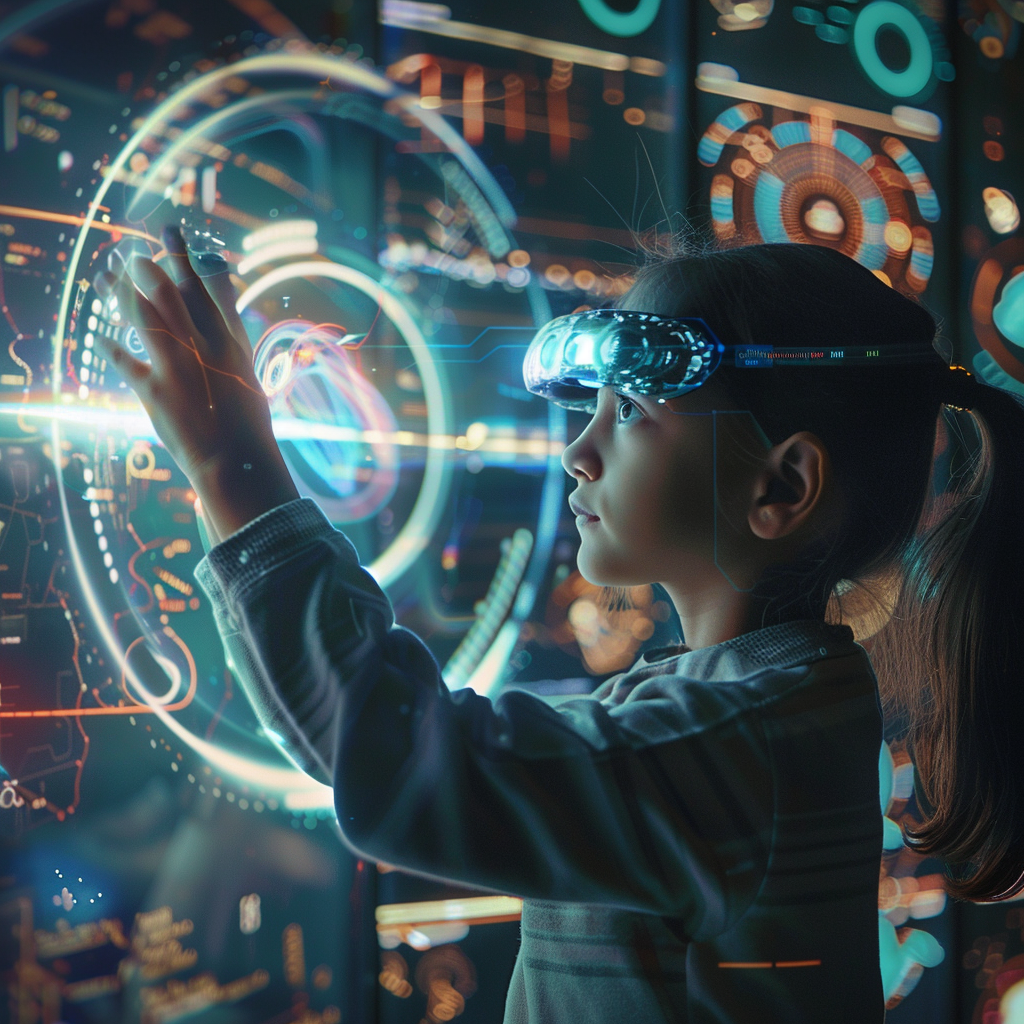
AI Marketing: Leveraging Artificial Intelligence to Drive Business Growth
Share
In the fast-paced world of digital marketing, staying ahead of the competition is crucial. Artificial Intelligence (AI) has emerged as a powerful tool for marketers, helping them not only streamline their processes but also gain valuable insights into consumer behavior and trends. AI marketing is revolutionizing how businesses interact with their customers, providing personalized experiences that drive engagement, conversion, and loyalty. In this article, we explore how businesses can leverage AI in their marketing strategies to accelerate growth and enhance customer experiences.
The Role of AI in Marketing
AI in marketing refers to the use of artificial intelligence technologies to improve and automate marketing processes. AI can analyze vast amounts of data, predict customer behavior, and optimize marketing campaigns for better results. By integrating AI into their marketing strategies, businesses can deliver more personalized experiences, improve customer targeting, and increase overall marketing efficiency.
For example, AI algorithms can predict which products a customer is most likely to buy based on their browsing history and previous interactions. AI can also automate the creation of personalized email campaigns, allowing businesses to send tailored content to each customer at the optimal time. AI-driven marketing platforms help businesses engage with their customers in real-time, providing them with the right message at the right moment.
Personalizing the Customer Experience with AI
One of the most powerful aspects of AI marketing is its ability to personalize the customer experience. Personalization has become a key driver of success in digital marketing, and AI is enabling businesses to tailor their marketing efforts to individual customers more effectively than ever before. By analyzing data such as browsing behavior, past purchases, and social media interactions, AI can create highly targeted and personalized campaigns that resonate with customers on a deeper level.
For example, an e-commerce business can use AI to recommend products based on a customer’s previous purchases or browsing history. Similarly, AI-powered chatbots can offer personalized product suggestions and assist customers in finding what they’re looking for, creating a seamless and interactive shopping experience. AI can even analyze a customer’s sentiment and adjust messaging accordingly, ensuring that the tone of communication matches the customer's current mood or stage in the buying journey.
Automating Campaigns and Content Creation
AI marketing tools can significantly streamline the creation and management of marketing campaigns. Traditional marketing campaigns often require significant time and effort to design, execute, and optimize. With AI, marketers can automate much of this process, allowing them to focus on strategy and creativity.
AI-powered platforms can automatically generate content, such as product descriptions, email copy, social media posts, and even blog articles. These tools use natural language processing (NLP) to understand the tone, style, and message required for a given audience. For example, Nibiru Creator can help marketers design interactive content like quizzes, polls, and customer surveys, while AI algorithms ensure that the content is optimized for maximum engagement.
Additionally, AI can automatically test and optimize campaigns by analyzing performance data in real-time. AI tools can determine which elements of a campaign—such as images, headlines, or calls to action—are performing the best and make adjustments to improve results. This level of automation ensures that marketing efforts are constantly refined and optimized for maximum impact.
AI-Driven Data Analysis for Smarter Marketing Decisions
One of the primary benefits of AI in marketing is its ability to process large amounts of data and provide actionable insights. Traditional data analysis methods can be time-consuming and may not always reveal the most important trends or patterns. AI, on the other hand, can quickly analyze customer data from various sources—such as website analytics, social media interactions, and email campaigns—and provide valuable insights into customer preferences, behaviors, and purchasing intent.
For example, AI tools can identify which customer segments are most likely to convert and recommend the best marketing strategies to target those segments. AI can also predict customer lifetime value (CLV), helping businesses identify high-value customers and prioritize them in their marketing efforts. By using AI to analyze data, businesses can make more informed decisions, optimize their marketing strategies, and improve ROI.
Enhancing Customer Support with AI
AI is also transforming the way businesses provide customer support. AI-powered chatbots and virtual assistants are becoming increasingly common in customer service, providing instant support to customers around the clock. These intelligent bots can handle a wide range of customer inquiries, from answering product-related questions to processing orders and tracking shipments.
By using AI to manage customer support, businesses can offer faster, more efficient service while reducing the workload on human agents. AI tools can also analyze customer interactions to identify common issues or pain points, helping businesses improve their products and services over time. Additionally, AI-powered support systems can escalate complex issues to human agents when necessary, ensuring that customers always receive the assistance they need.
Case Study: AI in Action in Marketing
To illustrate the power of AI marketing, let’s take a look at a real-world example. A retail company using AI to power its email marketing campaigns noticed a significant increase in customer engagement and conversions. The company implemented AI-driven tools to segment their email list based on customer behavior, and the AI system generated personalized emails with product recommendations tailored to each individual.
In addition, the AI system was able to analyze which email subject lines and content formats were most successful, allowing the company to refine its email strategy and optimize for higher open and click-through rates. As a result, the company saw a 30% increase in email engagement and a 15% increase in sales, demonstrating the effectiveness of AI in driving marketing success.
The Future of AI Marketing
The future of AI in marketing is incredibly promising, with the potential for even more advanced tools and techniques to enhance marketing efforts. As AI technology continues to improve, we can expect even more sophisticated personalization, automation, and optimization. AI-powered tools may soon be able to predict customer needs before they arise, allowing businesses to offer proactive solutions that improve customer satisfaction and loyalty.
We may also see AI used to create fully immersive marketing experiences, such as virtual reality (VR) or augmented reality (AR) campaigns. These technologies, combined with AI, could allow businesses to create highly interactive, engaging experiences that attract and retain customers in new and innovative ways.
AI is revolutionizing marketing by helping businesses deliver more personalized, efficient, and impactful campaigns. From automating routine tasks to providing valuable insights into customer behavior, AI is helping marketers optimize their strategies and achieve better results. Whether it's through personalized content, automated campaign management, or data-driven decision-making, AI is proving to be an indispensable tool for driving business growth. As AI technology continues to advance, businesses will have even more opportunities to enhance their marketing efforts and stay ahead of the competition.
